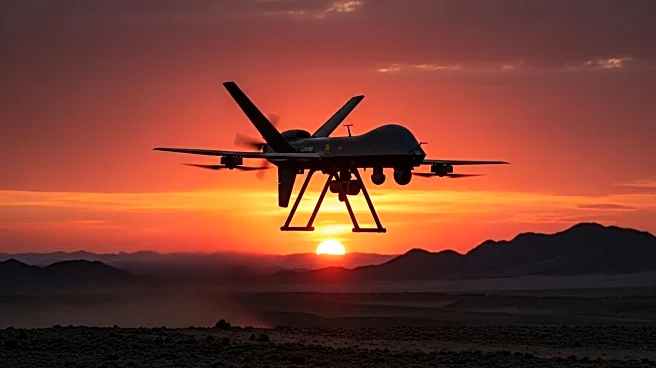What's Happening?
The Israeli Defense Forces (IDF) are on high alert as a ceasefire agreement with Hamas is set to take effect in Gaza. Military officials have expressed concerns that Hamas may attempt last-minute attacks, including rocket barrages and assaults on IDF troops. Chief of Staff Lt. Gen. Eyal Zamir has instructed units to remain vigilant and prepared for any scenario. The ceasefire agreement requires Israel to withdraw troops to a pre-agreed line within 24 hours of government approval, leaving Israeli forces in control of 53% of Gaza's territory. The IDF is also preparing for the release of hostages, ensuring the process is handled with sensitivity and professionalism.
Why It's Important?
The ceasefire agreement is a significant development in the ongoing conflict between Israel and Hamas, potentially leading to a temporary halt in hostilities. The IDF's readiness to respond to any last-minute attacks underscores the fragile nature of the truce and the ongoing tensions in the region. The redeployment of Israeli forces and the handling of hostages are critical components of the agreement, impacting both military strategy and humanitarian efforts. The situation remains volatile, with potential implications for regional stability and international diplomatic relations.
What's Next?
As the ceasefire takes effect, the IDF will continue to monitor the situation closely, ready to respond to any violations or threats. The successful implementation of the agreement and the safe release of hostages will be key indicators of its effectiveness. Political leaders and international observers will likely watch closely to ensure compliance and address any emerging challenges. The ceasefire's success could pave the way for further negotiations and a more lasting resolution to the conflict.











